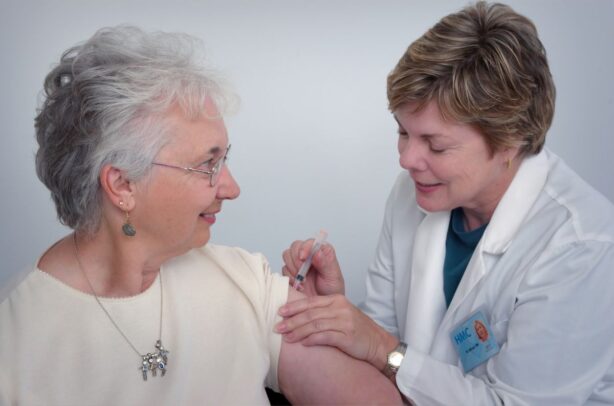As our loved ones age, their healthcare needs become increasingly important. And that’s why finding the right doctor for your elderly parent, who can provide compassionate and specialized care, is crucial.
But that can be easier said than done! With medical professionals in high demand across North America, finding just the right doctor can take some time and effort.

That’s why keeping some key requirements in mind and doing some systematic research can be so helpful when trying to ensure your senior parent receives the best possible care.
Keep these steps in mind to help you find the right doctor for your parent’s specific medical needs:
Assess Your Senior Parent’s Needs
Before beginning the search for a doctor, your first step should be to evaluate your senior parent’s unique healthcare needs.
Consider any existing medical conditions, chronic illnesses, or specific areas of concern.
Are they experiencing mobility issues, memory loss, or mental health challenges? Do they require specialized care, such as geriatric medicine or a particular medical specialty?
By understanding their medical requirements, you can focus your search on doctors who specialize in their specific needs.
Review Insurance Coverage
Considering insurance coverage can be another vital aspect when identifying the right doctor. Review their insurance plan to understand the network of doctors and specialists that are covered under their policy.
If you are wondering how to choose doctors that take Medicare or other specific insurance plans, make sure to check in with the insurance provider to find out which doctors and specialists will be covered.
This information can typically be found on the insurance company’s website, or by contacting customer service.
Additionally, consider any specific requirements or limitations that your parent’s insurance plan might have, including a need for referrals or pre-authorization for certain services or treatments.
Seek Recommendations
Personal recommendations from trusted sources can be invaluable in finding the right doctor for your elderly parent.
Reach out to friends, family members, and colleagues to see if they can share any positive experiences with doctors specializing in geriatric care.
Additionally, you may want to consult local senior centers, support groups, or online communities for suggestions.
Hearing first-hand accounts can help you narrow down your choices and gain insights into doctors who provide exceptional care for seniors.
Research Doctors’ Credentials
Once you have a list of potential doctors, delve a little deeper into their current credentials. Look for doctors who are board-certified in geriatric medicine, or have relevant specialties and experience in dealing with senior patients.
Verify their education, training, certifications, and affiliations with reputable medical associations.
You can use online resources like state medical board websites, professional directories, or healthcare review platforms to gather this information.
Consider Communication and Bedside Manner
Effective communication is crucial when caring for seniors. Look for doctors who exhibit excellent listening skills, patience, and empathy.
The ability to explain complex medical terms in simple language is vital for ensuring your senior parent’s understanding of any health conditions and treatment plans.
Opt for doctors who encourage questions, actively involve the patient and their family in decision-making, and exhibit respect for their opinions and preferences.
Look Into Accessibility and Office Environment
Even if you think you’ve found the best doctor for your senior parent, they may not be the best choice if their location doesn’t work for their needs.
So, before committing to a doctor, look into the office location and how close or far it is from your loved one’s home or senior community.
You may also want to look into any transportation options to and from the office that might be available.
Beyond that, take a look at the overall office environment, to ensure it is senior-friendly, with wheelchair accessibility, comfortable seating, and a friendly staff that understands the needs of elderly patients.
A welcoming and organized office can help minimize potential frustrations and contribute to a positive healthcare experience.
Assess Coordination of Care and Caregiver Involvement
Seniors often require comprehensive care that could involve multiple specialists, medications, and therapies.
Inquire about the doctor’s approach to coordinating care with other healthcare providers and involving family caregivers in the treatment process.
A doctor who values collaboration and actively engages with other medical professionals can ensure a holistic approach to your senior parent’s health.

Finding the right doctor for your elderly parent requires careful consideration of their specific healthcare requirements.
Start with doctors for seniors that specialize in your parent’s specific health needs, then narrow the list down further with some research.
Remember, the process may take time, but investing in the right doctor is an investment in your senior parent’s health and well-being.
